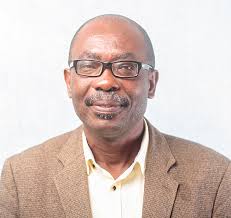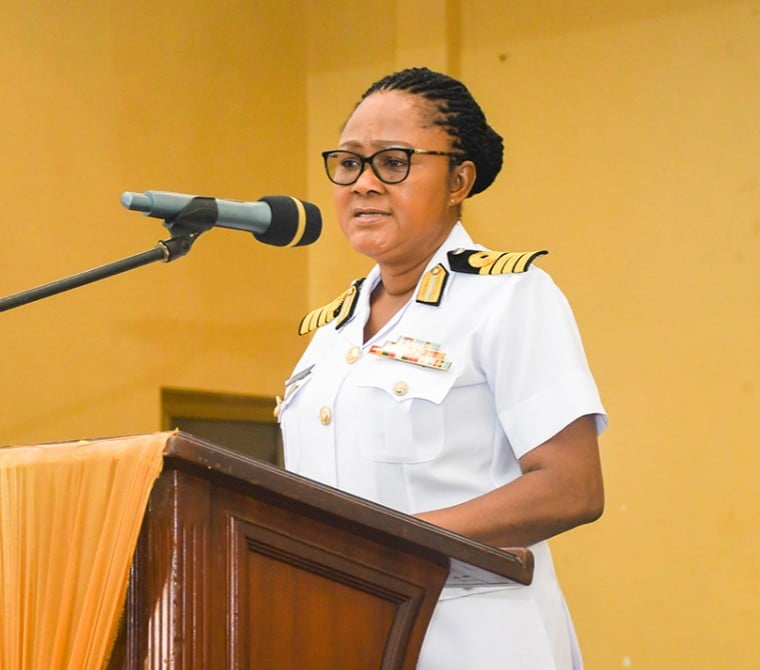
The University of Media, Arts, and Communication (UniMAC), under the auspices of the Directorate of Research, Innovation, and Development (DRID), is organizing an interfaculty research seminar on Friday, February 16, 2024, to discuss the dynamics of cohabitation and its impact on relationships and society in the contemporary world.
The seminar, which takes place on Friday at 10 a.m. (GMT) via Zoom, will feature Dr. Rosemary Obeng-Hinneh, a research advocate, sociologist, and senior lecturer at the University of Media, Arts, and Communication Institute of Journalism (UniMAC-IJ). She will be speaking on the topic: “Marriage? Courtship? Or somewhere in between?: Understanding the lived experiences of cohabiting couples in urban Accra.”
Speaking ahead of the event, Dr. Obeng-Hinneh, a staunch advocate for understanding the institution of marriage and family, emphasized the pivotal role of marriage and the evolving dynamics of relationships in modern society. She explained that cohabitation represents a domestic arrangement resembling marriage but without formal legal recognition.
According to her, marriage and family as an institution are the foundation of every society, and understanding the function of that society will take into consideration the institution of marriage and family. “… I believe that the family is the bedrock of society, so if you want to understand the workings of society, you come down to the basics, which are marriage and the family institution,” Dr. Obeng-Hinneh remarked.
While admitting the fact that every society recognizes the institution called marriage, Dr. Obeng-Hinneh did not shy away from the reality of cohabitation, which is almost becoming a norm in society. She explained that some people close the marriage institution and do not go through the demanded traditions to be together legally, thus the law does not recognize their union. Many are involved in cohabitation and are happily together and “living their lives as though they were married,” which is more reason why she is advocating that cohabiting couples have a place in the legal books.
Dr. Obeng-Hinneh further highlighted several challenges faced by cohabiting couples, especially concerning legal recognition and societal stigma. She emphasized the need for inclusive policies that acknowledge the rights of cohabiting partners, particularly in areas such as property rights and inheritance.
According to her, inclusive policies that respect the rights of such couples are important because her research findings revealed that some cohabiting couples have been together for many years and have secured properties together; however, the demise of one partner results in difficulties in sharing the properties.
“We have people who have cohabited for 20 years, 24 years, and some of them have jointly acquired property; however, when one of them dies, it becomes an issue because we haven’t considered cohabitation as another form of marriage, maybe because it is not conventional, but the reality is that there are many people in it.”
Speaking on whether people have positive lived experiences in cohabitating relationships, Dr. Obeng-Hinneh revealed that the experiences vary depending on who is involved. She recounted that one worrying aspect of the research is the gendered nature of cohabiting relationships.
According to her, while women often desire that the relationship transition to marriage, the men are typically indifferent, reflecting power dynamics within the relationship and by extension the Ghanaian society. This is due to the fact that the traditions of Ghanaian society demand that the men marry the women and not vice versa.
“Most of the time, the women want the relationship to transition into marriage, but the men are usually indifferent… whether the relationship will transition into marriage or not largely depends on the men because in our society the men will marry the women and not the other way around,” Dr. Obeng-Hinneh stated, adding that men are regarded as more powerful in society than women.
Additionally, she said that socioeconomic status plays a significant role, with middle-class women sometimes preferring the autonomy of cohabitation over the perceived restrictions of marriage.
The research seminar on Friday will delve deeper into the untold realities of cohabiting couples in urban Accra as supported by literature, examine ways to overcome the menace, and further prompt stakeholders and law-making bodies on the need to expedite actions undertaken to ensure cohabiting couples are able to navigate the numerous challenges they face.
The webinar is open to all, especially students and lecturers. Participants can expect a first-hand account of the lived experiences of cohabiting couples, providing valuable insights into this often overlooked aspect of modern relationships.
Moreover, Dr. Obeng-Hinneh plans to share the qualitative methodology employed in her research, offering great lessons for students and colleagues interested in qualitative research approaches.
The post UniMAC study to uncover the multifaceted realities faced by cohabiting couples appeared first on Citinewsroom - Comprehensive News in Ghana.
Read Full Story






















Facebook
Twitter
Pinterest
Instagram
Google+
YouTube
LinkedIn
RSS